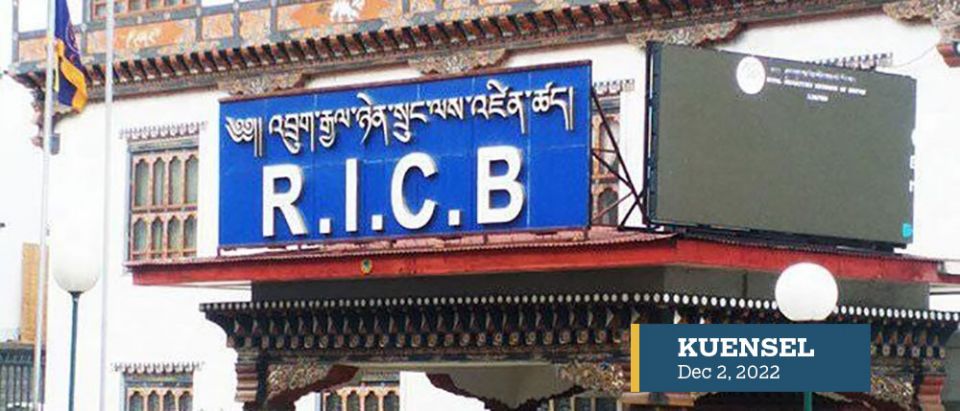
The Supreme Court upheld the judgement of the High Court regarding the case involving multiple unethical lending between the Royal Insurance Corporation of Bhutan Limited (RICB) and borrower Ugyen Wangchuk in July this year.
The High Court passed a judgement in October last year. RICB appealed to both High Court and Supreme Court.
The judgment ruled that the parties involved in the lending—RICB, employees involved, and Ugyen Wangchuk—to repay the amount in equal shares from the total non-performing loan amount Nu 102.39M—principal, interest, and penalty amount to RICB.
Each party has to pay around Nu 34M within six months from the date of the judgment.
RICB’s chief executive officer (CEO) said the company is still investigating the case and denied further information.
Ugyen Wangchuk had taken 12 different loans from RICB since 2010 but has not repaid any of the loans.
Investigation found that the officials of the insurance company had not followed the due diligence of the loan sanctioning procedure. “Despite Ugyen Wangchuk being a loan defaulter, the bank had continued to approve new loans.”
It was found that the collaterals that he mortgaged with the bank were unethical and some of the collaterals were sold.
He had also asked other people to sign the documents to avail loans.
The judgement states that accountability was fixed on the RICB employees who were involved in sanctioning the loans to Ugyen Wangchuk.
The judgement states that the loan was not sanctioned as per the rules and regulations of the company, and the documents were not submitted as per the required procedure.
The judgement mentioned that officials had also not verified the documents for the collateral mortgaged with the banks. It was found out that a loan was sanctioned based on a fake collateral document for a six-storeyed building at Changzamtok, Thimphu.
The judgement states that loan documents also did not contain authorised signature of the people involved.
RICB employees had also made dubious transaction from Ugyen Wangchuk’s loan account without informing him; some, according to the judgement, even had deposited money to their personal accounts.
The courts have held RICB accountable for management lapses.
The judgement mentioned that management did not monitor as per the credit manual 2011 while sanctioning the loan. The loans were also not approved by the loan committee or the board.
Despite Ugyen Waangchuk being a repeated defaulter, RICB has sanctioned 12 loans which are against the company’s system and management failed to monitor the additional loan approvals.
It has also mentioned that the management had not taken any action against employees involved in this case. The officials had not cross-checked with the Credit Information Bureau’s (CIB) record while sanctioning the loan.
Further, the courts found that Ugyen Wangchuk had merged seven bank guarantees with his loan account which is against the bank guarantee system. It was also found that the old loan accounts were liquidated with a new loan amount by the officials.
According to the Moveable and Immovable Property Act, when both parties are at fault, the loss has to be shared equally.
The district court sentenced Ugyen Wangchuk to one year and six months in prison for selling his mortgaged properties. He can, however, pay money in lieu of the prison term.
The High Court, on the other hand, made an exemption because the Supreme Court issued a circular which says criminal case should not be merged with civil case.


